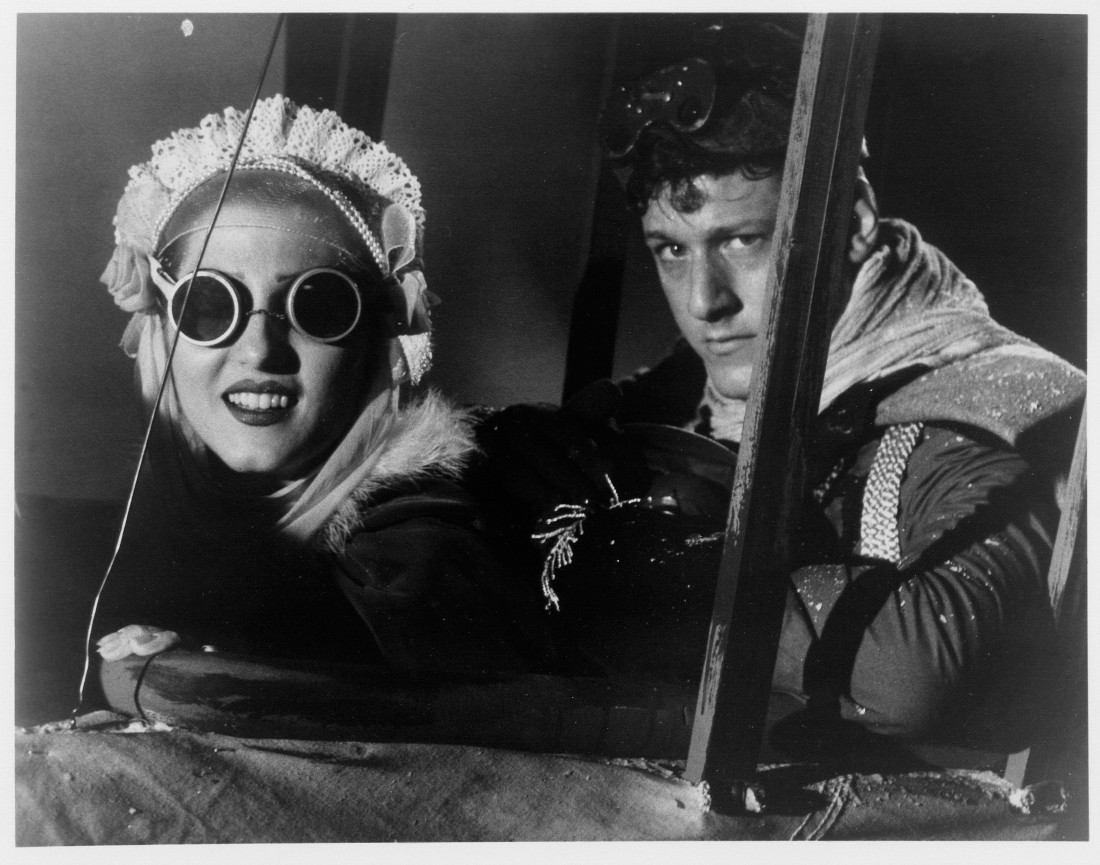Critipeg: Archangel
★★★★ out of 5
Plays at the Dave Barber Cinematheque on March 22 and 23
When it comes to Winnipeg filmmakers, one Guy stands far above the rest. To celebrate the Dave Barber Cinematheque’s newly serviced 35mm projector, the theatre will show director Guy Maddin’s 1990 motion picture Archangel.
Wikipedia ascribes the “comedy-drama” label on this film, and while it is comprised of bizarro versions of both, such parochial labelling is a disservice. Archangel, a curious blend of surrealist and expressionist sensibilities, is delivered in a parttalkie style and (mostly) devoid of colour.
The film follows Lt. John Boles (Winnipeg-born Kyle McCulloch) of the Canadian military. He embarks on a business trip of sorts to northern Russia, as the period setting of 1919 has Canada intervening in the Russian Civil War following the recent end of the First World War.
The one-legged Boles is not whole, both literally and figuratively. He mourns the loss of his lover, Iris, and maintains a generally surly disposition through the film. As he arrives in the town of Arkhangelsk (anglicized to Archangel) and shacks up with a local family near the front, he finds himself embroiled in a love triangle spurred by a case of mistaken identity and his own grief-stricken convictions.
This can be a confounding picture, and not just because the plot twists and turns enough to get one’s head spinning, which ultimately may be its primary objective. The tragicomic tone is established right off the hop. As Boles attempts to scatter Iris’ ashes at sea per her request, a ship captain mistakes her urn for a bottle of liquor and unceremoniously heaves it overboard.
Those familiar with the absurdist leanings of fellow surrealist filmmaker David Lynch may find themselves at ease with the capricious nature of the film. Everyone else should buckle up.
And that’s not to say that Archangel is a mere inundation of detached irony just because the movie proudly boasts its eccentricities. There are poignant plot threads among the sizable cast of characters.
A cowardly father’s redemption in the eyes of his son, Boles’ quest to ingratiate himself with a local woman physically identical to his deceased love and even the depiction of trench warfare have a campy yet stark quality. In the standout shot halfway through the film, Maddin shines a spotlight as the camera pans on the diverse company fighting in the civil war. It’s a perfect microcosm of the film’s eccentricity, beautiful in its idiosyncrasy.
Self-reflexive yet sincere, the movie strikes a deft balance between homage to cinema’s yesteryear and what can be transmuted into today. Yeah, the story takes a backseat to aesthetic values, and, occasionally, the film drags, even at 83 minutes. But if I may invoke the cliché that art is predominately about how it makes one feel, then I can confidently say these were 83 minutes I would gladly waste again. While some may feel compelled to mine this picture for meaning, I’m more than content to enjoy the studded ore.
Published in Volume 77, Number 23 of The Uniter (March 23, 2023)








